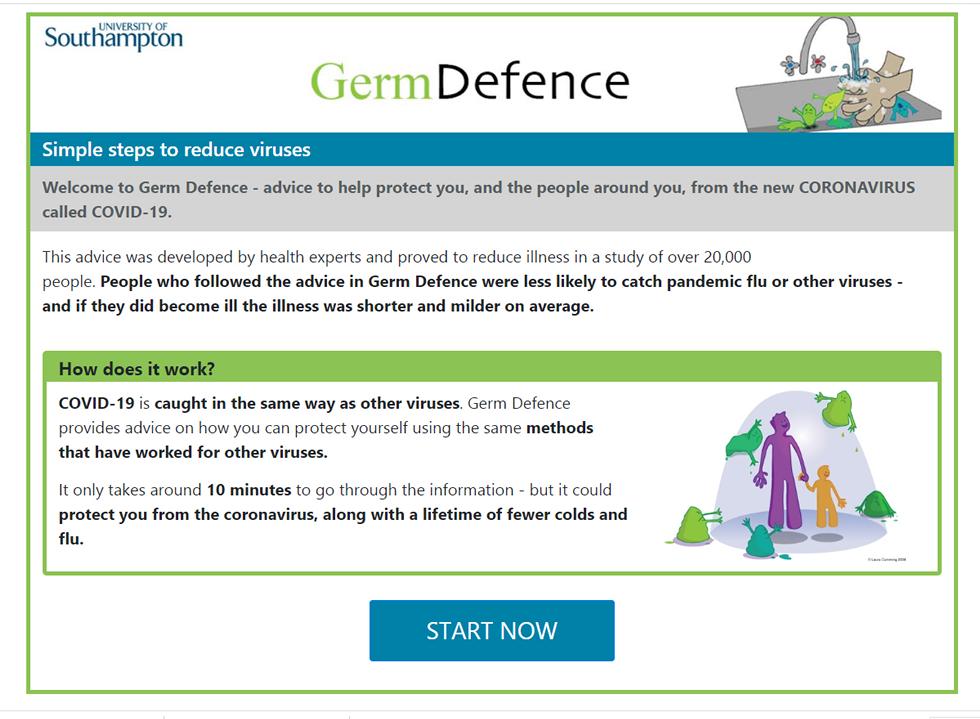Handy website awash with ways to protect you from coronavirus – COVID-19

A scientifically tested digital intervention created by the University of Southampton has already proved to be effective at reducing the spread of viral respiratory tract infections – such as colds and flu.
The coronavirus is caught in the same way as these other viruses, which means that the methods explained in this website can protect people from COVID-19, say the team who developed it.
‘Germ Defence’ was designed so that anyone can use and benefit from information and ideas on how to lower your risk of catching viral illnesses. This includes techniques for handwashing (when, where and how to wash your hands effectively), keeping a safe distance, not touching your face, and information to help you decide if you need to wear masks. In addition, the website provides advice on how to look after family and friends who are ill, but still protect yourself.
During a randomised trial of more than 20,000 UK households (prior to the website’s launch in 2015), Germ Defence proved it can help reduce the risk of infection by around 14% (as published in The Lancet in August 2015). The trial took place during the outbreak of Swine Flu, when there were already increased public health messages about reducing the spread of viruses through handwashing. Despite this raised awareness, people who used the website were still more likely to wash their hands the recommended amount of 10 times a day compared with those who didn’t. As a result they caught less colds and flu, and recovered more quickly from these ailments. This reduction in illness also extended to the people who lived with them, leading to a lower demand for consultations with their doctors.
The media have also been focusing on not shaking hands as a way to help reduce the spread of COVID-19. Although the scientific evidence for this is unclear, avoiding handshaking may help increase our awareness of how germs are spread. As suggested in Germ Defence, hands can be dirty without being able to see it. We would feel uncomfortable or embarrassed about shaking hands with someone, or touching other things, if we had mud on them. And we’d feel disgusted if someone tried to shake our hand and they were covered in dirt! So it makes sense to feel the same away about germs. Once we understand that our hands – and other peoples’ – can spread illnesses it becomes easier to remember to wash them regularly.
“Hand washing seems such a simple and accessible activity that most people feel they already know about,” said Paul Little, Professor of Primary Care Research at the University of Southampton. “Yet results from the trial and public use of Germ Defence show that people don’t necessarily wash their hands as often as they could or at the most effective times to remove germs.”
Professor Lucy Yardley, who led the development of Germ Defence, is one of the authors of a BMJ Opinion piece published this week that asks if we should ‘wave goodbye to handwashing’. Professor Yardley, Professor of Health Psychology at the University of Southampton and University of Bristol, said “Replacing handshake with new forms of greeting like the fist bump - or better still a bow from a respectful distance - is a good way of reminding people that everyone’s hands are covered in virus unless they have just been washed’.”
Germ Defence is a free-to-access website, available at germdefence.org
